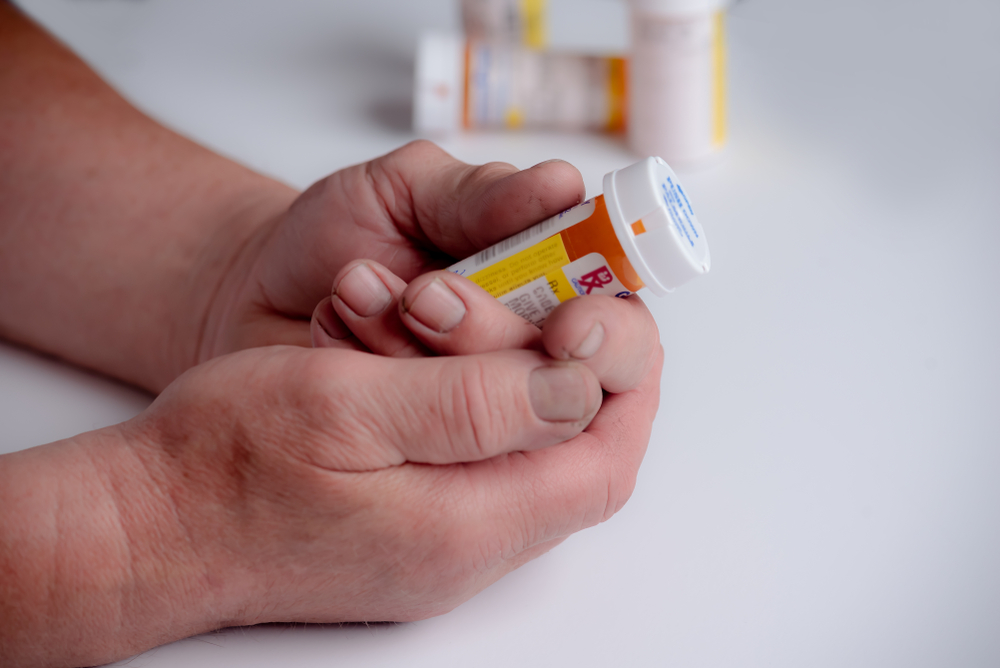Recovering from a Xanax addiction can be a challenging journey, but it is one that is worth taking for the sake of your health and wellbeing. Xanax, also known as alprazolam, is a powerful benzodiazepine that is commonly prescribed for anxiety and panic disorders. While it can be effective in the short term, it can also lead to dependence and addiction if used for an extended period.
Overcoming a Xanax addiction requires a combination of physical and psychological support, and professional treatment is essential to ensure a successful and safe recovery. With the help of trained addiction specialists, you can learn to manage your symptoms, develop healthy coping mechanisms, and regain control over your life.
Recovering from a Xanax addiction requires a comprehensive and professional approach to address both physical and psychological aspects of the addiction.
What is Xanax?
Xanax is a brand name for the prescription medication alprazolam, which is a benzodiazepine used to treat anxiety and panic disorders. It works by increasing the activity of a neurotransmitter called GABA, which calms the nervous system and helps to reduce feelings of anxiety. However, because of its potency and ability to produce feelings of relaxation and euphoria, it is also commonly misused and can lead to dependence and addiction.
Is Xanax Addictive?
As a prescription drug, Xanax poses little risk when prescription guidelines are followed; however, abuse of this benzodiazepine often leads to serious health concerns. Having a high potential for abuse, Xanax stimulates the brain’s GABA receptors which are responsible for producing a sense of calm. After prolonged or excessive use, the brain becomes dependent on the substance to continue GABA functioning. Because of this dependence, seizures and other serious withdrawal symptoms may occur with abrupt Xanax discontinuance.
Xanax abuse can cause many adverse reactions when abused on its own, but combining this benzodiazepine with other substances is extremely dangerous and one of the most common causes of overdose. When combined with alcohol, heart and breathing rates plummet, resulting in cardiac or respiratory suppression or arrest. According to the Substance Abuse and Mental Health Services Association, the estimated number of Xanax-related emergency department visits doubled from 57,419 visits in 2005 to 124,902 visits in 2010 with 19 percent involving Xanax only and 39 percent involving a combination with another drug, most commonly alcohol.
Signs of Xanax Addiction
It’s important to remember that everyone’s experience with addiction is unique and that not everyone will experience all of these signs. Some signs of Xanax addiction include:
- Tolerance: needing to take more of the drug to achieve the same effect
- Withdrawal symptoms: experiencing physical and psychological symptoms when trying to stop or reduce usage
- Unsuccessful attempts to quit: repeated failed attempts to quit or reduce usage despite negative consequences
- Compulsive use: using the drug despite knowing it is causing harm to oneself or others
- Loss of control: difficulty in limiting the amount of the drug consumed
- Continued use despite consequences: using the drug despite knowing it is causing negative consequences in one’s life, such as interpersonal, work, or legal problems
- Neglecting responsibilities: giving up important activities and responsibilities in favor of using the drug
- Using the drug in hazardous situations: using the drug even in dangerous or life-threatening situations
Dangers of Xanax Addiction
Xanax has a profound impact on an individual’s life and health. The below listed dangers are unique to Xanax abuse. The following are dangers of Xanax abuse and addiction:
Increased Anxiety
As a prescription medication often used to treat anxiety and panic disorders, it is surprising to learn that Xanax abuse can actually worsen these disorders. Because Xanax affects GABA neurotransmitters, the brain eventually becomes unable to naturally manage GABA without the presence of Xanax. If Xanax use is stopped or minimized, anxiety will reemerge, and possibly be more intense.
Seizures
One of the most dangerous side effects of Xanax addiction is the risk of seizure. If an individual has been taking this prescription drug for over four weeks and then abruptly stops using, they may experience life-threatening seizures. This occurs when the absence of Xanax causes brain synapses to fire off since the chemical presence the brain had become dependent on is no longer present.
Mood Disturbances
Due to the chemical effects, Xanax has on the brain, extreme mood swings and mood imbalance are common indicators that Xanax is being abused. By minimizing the effects of the neurotransmitter GABA, Xanax promotes a sense of calm. However, prolonged or excessive use can cause bouts of violence, agitation, extreme risk-taking, or thoughts of suicide.
Can You Overdose on Xanax?
Yes, a Xanax overdose is very possible. It is important to recognize the signs of an overdose, which may include drowsiness, confusion, impaired coordination, decreased reflexes, and difficulty breathing. In severe cases, it can result in a coma or death. Therefore, it is essential to always follow the instructions given by a healthcare provider when taking Xanax and not exceed the prescribed dose to avoid an overdose. In case of a suspected overdose, 911 should be called right away.
Xanax Withdrawals
When someone who has been taking Xanax over an extended period of time stops taking the medication or lowers their dosage, they may experience withdrawal. The severity of the withdrawal symptoms can differ depending on the individual and how long they have been using Xanax, and could include:
- Anxiety
- Insomnia
- Sweating
- Tremors
- Fatigue
- Headaches
- Seizures
- Irritability
Medically-assisted detox is the safest and most effective way to manage withdrawal symptoms from Xanax. This process begins with a consultation with a medical professional who will assess the individual’s current situation and provide guidance on tapering off the medication in a manner that prevents or minimizes any potential risk.. Withdrawal symptoms can still occur during this process, but they should be much milder than if the medication was abruptly stopped.
How to Recover from a Xanax Addiction
If an individual begins exhibiting signs of addiction, such as a desperate need to continue use, change in appearance, or extreme mood swings, professional treatment is crucial. In many cases, the first step in treating Xanax addiction is withdrawing from the substance. Because of the health complications that may arise during the withdrawal process, it is highly recommended that the individual seeks medical assistance during this stage. Clinically-supervised detox can guarantee that the individual can be safe during the withdrawal process.
Once an individual has successfully shed all residual traces of Xanax, it is important to seek additional care. Research has shown that behavioral therapies are very effective in treating addiction. Professional addiction therapists work with clients to develop healthy decision making and coping skills to fight future temptations. Treatment within professional addiction treatment centers also reinforces sobriety by providing a support system among like minded individuals.
What To Expect During Treatment for Xanax Addiction
Treatment for Xanax addiction is a multi-faceted process that typically includes a combination of behavioral therapy, medication-assisted treatment, and support from family and loved ones. The specific approach will depend on the individual’s needs and circumstances. Here’s what to expect during treatment:
Medical Detoxification
In many cases, individuals who are addicted to Xanax will need to undergo a medical detoxification process. This process involves gradually reducing the amount of the drug in the system under the supervision of medical professionals to minimize withdrawal symptoms.
Behavioral Therapy
This type of therapy helps individuals understand the root causes of their addiction and provides them with tools to develop healthy coping mechanisms. Cognitive-behavioral therapy and dialectical behavior therapy are two common approaches used in the treatment of Xanax addiction.
Medication-Assisted Treatment
Some individuals may benefit from medication-assisted treatment, which involves the use of medication to ease withdrawal symptoms and reduce cravings. For example, a benzodiazepine like clonazepam can be used to help manage withdrawal symptoms, while naltrexone can help reduce cravings.
Group Therapy
Group therapy provides individuals with the opportunity to connect with others who have similar experiences, which can be beneficial in promoting accountability and building a supportive network.
Family Therapy
Family therapy involves family members in the treatment process and helps to address any issues that may be contributing to the addiction.
Aftercare and Support
Continuing care after treatment is crucial in maintaining sobriety and avoiding relapse. This may include individual therapy, support groups, and medication management.
Treatment for Xanax addiction can be a long and challenging process, but with the right support, it is possible to overcome the addiction and achieve lasting recovery. It’s important to find a treatment center that is equipped to handle the specific needs of individuals with benzodiazepine addiction and that provides a range of evidence-based treatments.
We’re Here for You
Xanax is a highly addictive benzo that inflicts irreversible damage when abuse is left untreated.. It is important to seek help immediately if you or a loved one is struggling with this addiction. At Asheville Recovery Center, treatment specialists have developed a unique, hybrid model of treatment which combines a traditional 12-step program with holistic rehabilitation. A multitude of services, programs, and therapies are offered, including the Partial Hospitalization Program, Residential-style treatment, outpatient rehabilitation, and more.
The founders of Asheville Recovery Center, as well as many of our addiction therapists, have struggled with addiction and now enjoy life in recovery. They understand the struggles of addiction and how difficult it is to overcome alone. If you feel that you or a loved one is struggling with substance abuse, our specialists are on standby and ready to help. Call (828)518-6996 and speak with an addiction expert today so you can take the first step towards a rewarding life of sobriety.










